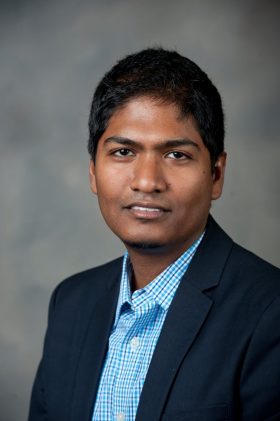The assistant professor of economics' research examines the extent of growth elasticity in a developed economy.
 Tonmoy Islam, assistant professor of economics in the Martha and Spencer Love School of Business, published an article titled “Estimating the Elasticity of Growth in the U.S. Using the Generalized Means of Income” in Social Indicators Research.
Tonmoy Islam, assistant professor of economics in the Martha and Spencer Love School of Business, published an article titled “Estimating the Elasticity of Growth in the U.S. Using the Generalized Means of Income” in Social Indicators Research.
Islam investigated growth elasticity in the U.S., looking at the relationship between poverty reduction and growth.
The paper’s abstract reads:
“Economic growth has been a key mantra to promote poverty reduction in developing countries. Studies have shown that a 1 percent GDP growth can reduce absolute poverty (or increase the average income of the poorest quintile) by 1 percent or more in developing countries. The literature calls this relationship between poverty reduction and growth as growth elasticity. However, there is very little research available studying the extent of growth elasticity in a developed economy. I fill this vacuum in literature by applying the method of generalized means of income outlined in Foster and Székely (Int Econ Rev 49(4):1143–1172, 2008) on micro-level data to estimate the elasticity of growth in the US. The generalized means of income of Foster and Székely (Int Econ Rev 49(4):1143–1172, 2008) satisfies all the axioms of a good income standard, which makes it a preferred method to measure the elasticity of growth. My analysis shows that most of the growth in the U.S. is driven by the richer segment of the society. The ‘wealthier’ poor get some benefit from growth—a 1 percent increase in per-capita state-level income leads to about 0.9 percent increase in their income both in the short and long run. However, this relationship diminishes when I calculate the growth elasticity of those in deeper poverty. Sectorwise decomposition of income shows that the ‘wealthier’ poor benefit from an increase in the size of the service sector, but those in deeper poverty do not see this benefit.”
Founded in 1974, Social Indicators Research publishes research on all aspects of the quality of life and gives special attention to studies on topics such as sustainability of quality of life, sustainable development, and the relationship between quality of life and sustainability.


